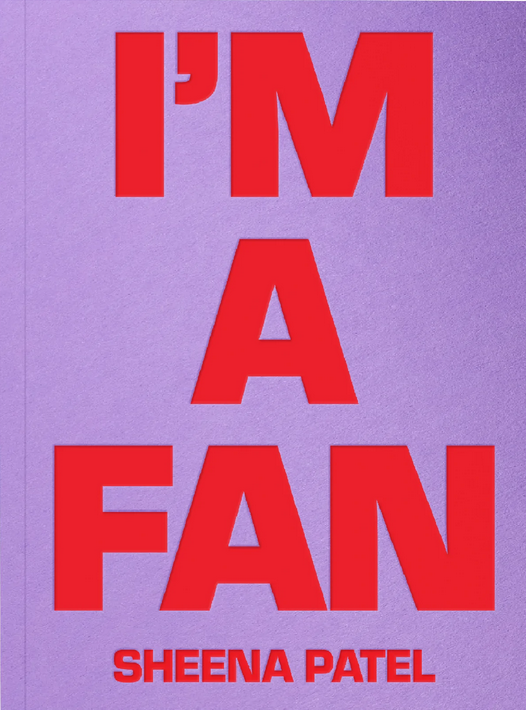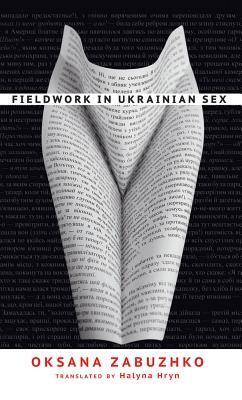What he is, is greedy and lazy, selfish and a coward but what he also is, is clear and when he gives me a way out, I refuse to take it.

Readers and critics alike have described the unnamed narrator of Sheena Patel’s I’m A Fan as an ‘unlikable character’, one of those Moshfeghian millennial bitches we love to hate. I have problems getting to grips with this designation. To me, she’s simply real. If angry and uncomfortably honest makes you unlikable, I guess that’s just more of the shit we’re having to wade through.
As in Anna Burns’s Booker-winning novel Milkman, with which Patel’s debut shares more than a strand of literary DNA, no one is named. Characters are ascribed a function within the text: ‘the man I want to be with,’ ‘the woman I am obsessed with’, ‘his wife’, ‘my boyfriend’. This is both alienating and strangely intimate, as if we too are engaged in spying on these people, as if we too are complicit with what is going on. As, if you are a woman, you will be. Because in one way or another, you will have been there.
If I had been writing about this subject at the time when similar stuff was happening to me, the resulting text’s internal furniture would have been different: street maps instead of Google maps, telephone boxes instead of iPhones, newspaper articles instead of Insta. The sentences would have unfolded differently as a result, more formally structured and punctuated in keeping with the times. But the story would have been the same, or broadly similar. That tortuous tract of time when one’s internal weather is mainly dictated by the narcissistic, self-seeking actions of another person. The madness of knowing that, but still sacrificing one’s agency. The pointless suffering that – with a portion of luck and a fuckton of time – you eventually wrest yourself free of and pick up your life.
What cannot be wrested free of are the adjacent pitfalls, the systemic inequalities of class, race and gender Patel’s unnamed narrator catalogues and interrogates with matter-of-fact, intimate knowledge and brutal precision.
*
No, I would really like for someone to explain to me, why the hell would one come into this world a woman – and in Ukraine, yet! – with this fucking dependency programmed into your body like a delayed-action bomb, with this craziness, this need to be transformed into moist, squishy clay kneaded into the Earth’s surface…

You’re a woman. And that’s your limit./Your moon sleeps like a silver fish lure./Like spices off the edge of a knife/Dependency sprinkled into your blood.
Oh, this book.
So there it was, girlfriend – you fell in love. And how you fell in love – you exploded blindly, went flying headfirst, your witch’s laugh ringing to the heavens, lifted by the invisible absolute power of whirlwinds, and that pain didn’t stop you – although it should have – but no, you cut the juice to all your warning signs that had lit up with their red lights flashing and screaming “meltdown” – like before the accident at the atomic station – and only your poems, which switched on immediately and rushed forward in a steady, unrelenting stream, sent out unambiguous signals of danger: persistent flashes of hell, and death, and sickness.
Fieldwork in Ukrainian Sex is as much about language as physical intimacy. The vexed and now murderously abusive relationship between Russia and Ukraine, between the Ukrainian language and the Russian language, runs through this novel like a sword, as its true subject matter, the matter of language not so much a metaphor for sexual politics as the other way around.
Zabuzhko’s work contains some of the most thrilling, innovative writing at the sentence level that I have ever read, and I want to give particular mention here to the novel’s translator, Halyna Hryn, who has conveyed the raw force of the original with a facility and passion that keeps English-language readers as close to Zabuzhko’s furious rhythms, her sardonic humour and dextrous word choices as is possible.
The way this novel is freely punctuated with poetry. The way there is no redemption, save the hunger for freedom.
Fieldwork in Ukrainian Sex is most likely the most important novel I will read all year. The fact that it was written in 1996 should make us all ask ourselves questions about the gaps between the real and the imagined in our attitude to nations, peoples and individuals threatened with existential as well as physical annihilation.